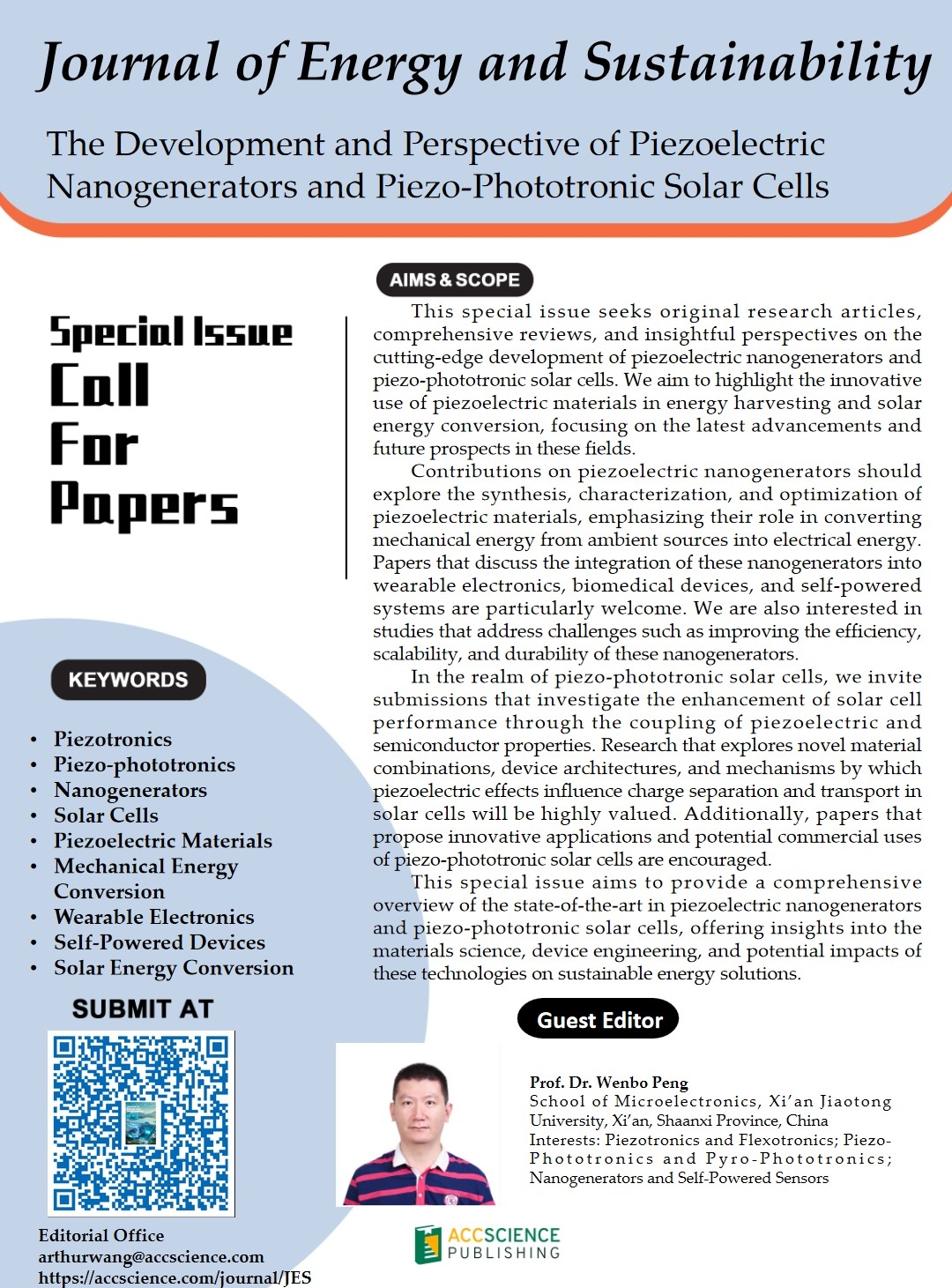
This special issue seeks original research articles, comprehensive reviews, and insightful perspectives on the cutting-edge development of piezoelectric nanogenerators and piezo-phototronic solar cells. We aim to highlight the innovative use of piezoelectric materials in energy harvesting and solar energy conversion, focusing on the latest advancements and future prospects in these fields.
Contributions on piezoelectric nanogenerators should explore the synthesis, characterization, and optimization of piezoelectric materials, emphasizing their role in converting mechanical energy from ambient sources into electrical energy. Papers that discuss the integration of these nanogenerators into wearable electronics, biomedical devices, and self-powered systems are particularly welcome. We are also interested in studies that address challenges such as improving the efficiency, scalability, and durability of these nanogenerators.
In the realm of piezo-phototronic solar cells, we invite submissions that investigate the enhancement of solar cell performance through the coupling of piezoelectric and semiconductor properties. Research that explores novel material combinations, device architectures, and mechanisms by which piezoelectric effects influence charge separation and transport in solar cells will be highly valued. Additionally, papers that propose innovative applications and potential commercial uses of piezo-phototronic solar cells are encouraged.
This special issue aims to provide a comprehensive overview of the state-of-the-art in piezoelectric nanogenerators and piezo-phototronic solar cells, offering insights into the materials science, device engineering, and potential impacts of these technologies on sustainable energy solutions.


